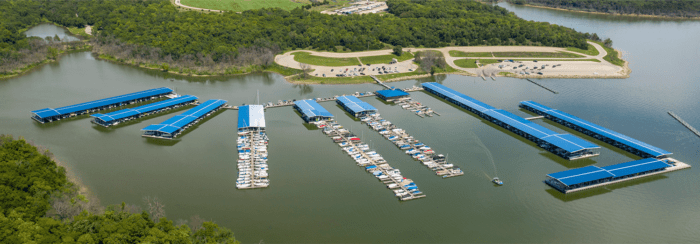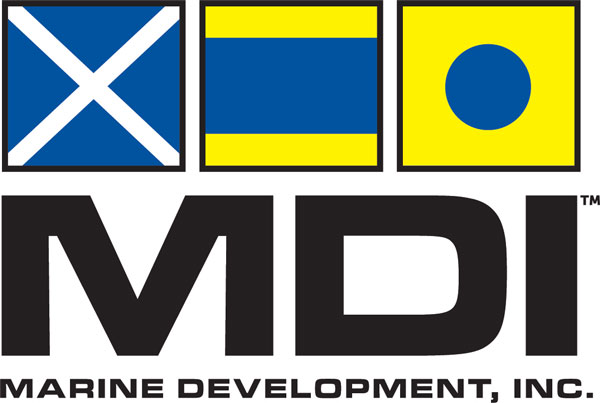If you’re planning to develop a marina, you’ll need to navigate through various permitting processes before your dream of boat marina ownership can become a reality.
The requirements to get a permit may seem overwhelming at first, but by understanding the different levels of permitting and regulations involved, you can streamline the process and bring your vision to life.
There are numerous permits required to build a new marina at the Federal level – and local as well. Federal requirements include permits from the US Army Corps of Engineers, Environmental Protection Agency (EPA), and Fish & Wildlife Service.
You must also comply with state-specific permitting requirements and local zoning regulations. Additionally, environmental compliance is crucial when developing a marina as it impacts water quality and wildlife habitats.
Finally, public safety considerations such as emergency response plans and adequate parking must be addressed in order to ensure a safe environment for all who visit or use the marina facilities.

Federal Permitting Requirements
You’re going to need to jump through a few hoops with the feds if you want to build that dream waterfront destination of yours. Navigating bureaucracy is never fun, but it’s necessary when it comes to federal permitting requirements for marina development.
The permitting process can be a lengthy one, so be prepared for some waiting time. One of the main concerns of the federal government is ensuring that your marina won’t have a negative environmental impact.
They’ll be scrutinizing every inch of that shoreline, making sure it’s safe for boaters and wildlife alike.
You’ll need to provide detailed plans on how you plan on mitigating any potential harm to the environment, such as using eco-friendly materials or implementing erosion control measures. It may seem daunting, but taking these steps will not only protect the environment but also increase your chances of receiving approval for your project.
State Permitting Requirements
The requirements laid out by the state for obtaining approval are stringent and must be met with careful consideration. Permitting fees will vary depending on the specific state you’re operating in, but it’s important to budget for these costs as they can add up quickly.
In addition to fees, you’ll need to provide detailed plans outlining your proposed marina development, including site maps, environmental impact assessments, and construction plans.
The timeframe for approval can also vary depending on the complexity of your project and the workload of state permitting agencies.
It’s important to factor in ample time for review and potential revisions when planning your project timeline. Be prepared to communicate frequently with permitting officials throughout the process to ensure that your application is progressing smoothly and any issues are addressed promptly.
With careful attention to detail and a thorough understanding of state permitting requirements, you can successfully navigate this crucial step in developing your marina project.
Maybe you want to jump on some of the latest marina trends and do some renovations? Remember, you will still need to acquire permits for that work as well!
Local Permitting Requirements
As you delve into the requirements for local approval, it becomes clear that understanding the community’s needs and values is essential to crafting a project that will be welcomed and embraced.
Local permitting requirements often include regulations related to environmental impact, zoning restrictions, and building codes specific to the area. It’s important to work closely with city officials throughout the process to ensure that your plans align with their vision for development in the area.
Timeline management is also an important factor when it comes to local permitting requirements. The time it takes to receive approval can vary greatly depending on the complexity of the project and any potential roadblocks along the way.
Additionally, cost considerations should be taken into account as local permits can come with fees and expenses that must be factored into your budget.
By carefully navigating through these local requirements, you’ll be able to successfully obtain all necessary approvals before moving forward with your marina development project.
We Can Help!
From planning to permitting, our marina development services can do it all. If you are a freshwater marina looking for a change, contact us today for a free consultation.
Environmental Compliance
Navigating environmental compliance can be a complex and costly aspect of obtaining approval for your marina development project. There are several permitting challenges that you need to overcome, such as identifying potential environmental impacts, assessing the project’s impact on local ecosystems, and ensuring that mitigation strategies are put in place to minimize any negative effects.
You’ll also need to obtain permits from various regulatory agencies before starting construction. To ensure that your marina development project complies with all applicable environmental laws and regulations, it’s important to work closely with environmental consultants who have expertise in the specific requirements of your state or local jurisdiction.
These experts can help you identify potential issues early on in the permitting process and develop effective mitigation strategies to address them. By taking a proactive approach to environmental compliance, you can avoid unnecessary delays and costs associated with permit denials or revisions later on in the process.
Public Safety and Zoning Regulations
It’s important to be aware of public safety and zoning regulations when planning your marina development project. Failing to comply with these regulations could lead to serious consequences.
You need to ensure that your marina complies with building codes, including those related to fire safety and emergency response.
In addition, you must consider zoning regulations when designing your marina. Some areas may have restrictions on the types of structures or activities allowed near bodies of water.
You’ll also want to make sure that any waterfront features you include are safe for visitors and meet all necessary requirements for public access.
By following these guidelines, you can create a safe and successful marina development project that will comply with all necessary regulations.
When To Get Started On The Permit Process
Timing the permit process is critical to getting your project started.
If you start too early, you may have to do many steps over.
Start too late and you will not launch in time and may incur fees from vendors!
Typically it is recommended to start acquiring your construction permits once your concept design is finished. The design concept should include all the elements of your vision for the marina.
This should include some of the following:
- Size of the marina
- Expected materials used
- Number of boats expected to house
- Electrical requirements
- Aesthetic elements – greenery or any other element that would affect the landscape and waterway
Make sure you provide enough information to allow the permitting department to fully understand the complexities of the project.
Will you have a restaurant on site, adding wave attenuator docks, or doing something outside the ordinary? Be sure to add these elements to your concept!
Conclusion
So there you have it – the permitting process for marina development broken down into four key areas: federal, state, local, and environmental compliance.
Each level of government has its own set of requirements and regulations that must be met before a marina can be built. Additionally, public safety and zoning regulations play a critical role in ensuring that marinas are built and operated in a safe manner.
While navigating through the permitting process may seem daunting at first, it’s important to remember that each step is designed to protect the environment, ensure public safety, and promote responsible development. By working closely with regulators and following all guidelines throughout the permitting process, developers can successfully build high-quality marinas that benefit both their businesses and communities alike.
